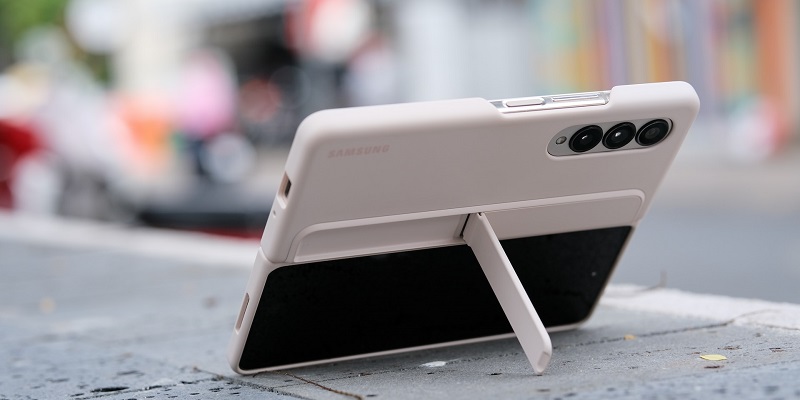The Samsung Galaxy Z Fold series is one of the most exciting and innovative product lines from Samsung. These devices have a foldable design that has been truly groundbreaking, offering a unique experience that combines the productivity of a tablet with the convenience of a smartphone. With five cameras on the device – three on the back and two on the cover and main displays – the Z Fold is also a multitasking powerhouse. In this article, we’ll explore what to expect from the camera system of the upcoming Galaxy Z Fold 3.
Expectations for camera upgrades and improvements in the new Galaxy Z Fold 5
Samsung has always put a strong emphasis on camera technology, and we expect this trend to continue with the new Galaxy Z Fold 5. The Z Fold 5 is expected to bring upgrades to its camera hardware and performance, elevating the mobile photography experience to a new level.
Rumors about a larger 108MP sensor for the Z Fold 5 have been debunked
There were rumors circulating about the possibility of a larger 108MP main sensor for the Z Fold 5, but more recent reports have suggested that this is unlikely. While a larger sensor would certainly be impressive, Samsung is expected to take a different path and use the same 50 megapixels but with a new sensor that produces better image quality and supports new camera features.
Using a new sensor for the same 50MP main camera can support better image quality and new features
According to rumors and leaks, Samsung is working on a new sensor for the main camera on the Z Fold 5. Despite rumors of a larger sensor, it is more likely that Samsung will opt to keep the same 50-megapixel count while using this new sensor. The primary focus of this new sensor is expected to be better image quality and support for new camera features. This is especially important in a device like the Z Fold 5, where users are more likely to take photos and videos in a variety of settings and lighting conditions.
There are no expected changes to the telephoto and ultra-wide cameras on the Z Fold 5
While we do expect to see some improvements to the camera system of the Z Fold 5, there are unlikely to be any significant changes to the telephoto and ultra-wide cameras. These cameras have performed exceptionally well in previous iterations of the Z Fold series, so it makes sense to carry them over to the new model.
Vague rumors are circulating about new sensors for some of the cameras on the Z Fold 5
There have been some vague and unconfirmed rumors about new sensors for some of the other cameras on the Z Fold 5. However, there is not enough information available to predict what kind of improvements we might see, or even whether such improvements will be made.
The Galaxy Z Fold 5 will most likely have a total of four cameras, including the main camera, telephoto camera, and ultra-wide camera, as well as a selfie camera on the cover display.
Possible upgrade for the cover display selfie camera
There is no clear information regarding a potential upgrade for the selfie camera on the cover display. However, given Samsung’s commitment to enhancing the photography experience on their devices, it is plausible that we may see some improvements here.
What is the expected megapixel count for the main camera on the Z Fold 5?
The expected megapixel count for the main camera on the Galaxy Z Fold 5 is 50MP, the same as the previous Z Fold devices. However, we expect this new sensor to deliver notable improvements in image quality and camera features.
Overall, it’s clear that while Samsung is likely to make some improvements to the camera system on the Z Fold 5, they are not focusing entirely on camera technology. Like previous models, the Z Fold 5 is primarily designed to be a multitasking powerhouse, offering users the ability to work and play on a variety of screens. Nonetheless, we expect the camera system to perform well and to compete with other high-end smartphones on the market.

